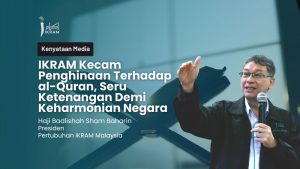It has become clear by now that the recent reciprocal tariffs announced by Trump are misleading and errantly calculated as they are based on trade balance rather than actual trade barriers.
Evidently, this move does not make economic sense as it threatens financial and economic stability. Some even remark that Trump is intentionally crashing the economy so that the elite oligarchs can engage in a shopping spree in the stock market – not surprising given that they make some of Trump’s closest allies.
However, a larger motive is possibly at play. Trump’s quest to be the most powerful person on earth goes hand-in-hand with the motive to maintain US hegemony in the presence of a powerful China, which is seen as a threat to the US by the Trump administration.
Already, the rise of China’s AI at a fraction of the price developed by US technology companies has sent shivers across the stock market. China’s electric vehicles are fast outpacing those from the US in terms of competitiveness and sales.
Therefore, the reciprocal tariffs should not be seen as a mere economic tool. Rather – and more importantly – it is a tool for Trump to consolidate his power and maintain US hegemony in the world order despite the country’s declining economic and political clout over the years.
Such tariffs will increase the government’s role in business. World leaders and industry players may find themselves beholden to the US government as they negotiate for reductions in tariff rates. Patronage politics would be an inevitable outcome.
Rent-seeking, in which those who are close to the corridors of power benefit from the manipulation of government policies and contracts, can be expected to be on the rise. As a result, it may damage the reputation and competitiveness of the US as a leader in technology and innovation.
On the other hand, political patronage would benefit Trump and the oligarchs. Trump would be able to consolidate his power whereas his oligarchs would maintain their dominance in the economy. In the economic rationality framework, this is perfectly rational behavior based on pure self-interest.
Recent developments following Trump’s inauguration as the US President not only introduce significant uncertainties but also threaten the stability that people have enjoyed over the years.
His blatant remarks on the future of Gaza, envisioned as a Riviera in the Middle East, showed his disregard for the rights and plight of the Palestinians. His treatment of Ukrainian President Zelenskyy in the White House showcased the lack of diplomacy in international relations. His policies on Canada and Mexico have turned neighbours into foes.
Trump’s “might is right” policy does not augur well for global peace and prosperity. In response to the reciprocal tariffs, Singapore’s Prime Minister Lawrence Wong reminisced the trade war in the 1930s which led to World War II – a grim reminder indeed.
As world leaders and businesses search and scramble for optimal strategies in dealing with the US administration, alternative strategies should be developed to navigate troubled waters ahead.
While a few may have the liberty to navigate these challenges to some extent, the rest would find themselves in a more precarious situation or, worse yet, at the mercy of the US’ might.
Mohammad Abdul Hamid
Head of Economic Prosperity Cluster
Pertubuhan IKRAM Malaysia (IKRAM)







